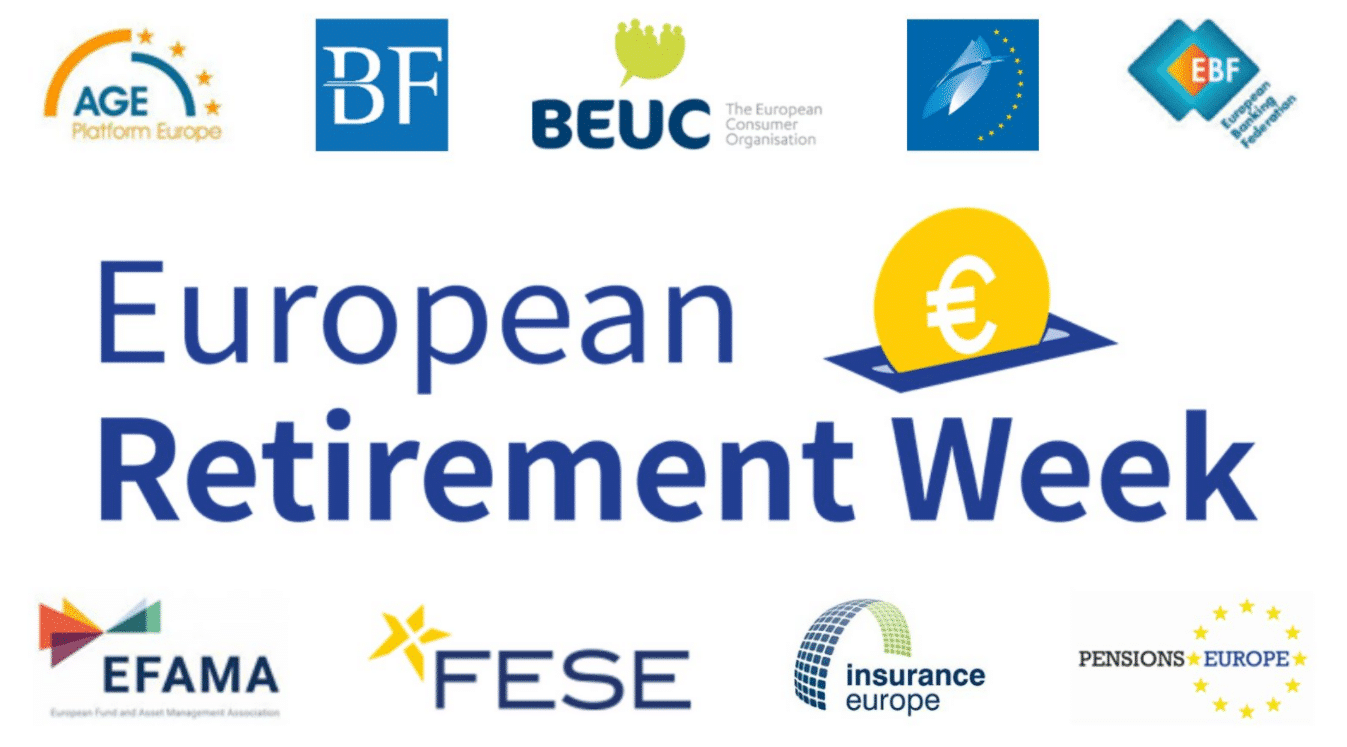As part of the European retirement week, we held an online conversation on pension adequacy and the role of the three pillars. Our event Realising and protecting pension adequacy across the pillars for current and future generations looked at the second and third-pillar pensions from the point of view of fiscal justice, inter-generational solidarity and environmental sustainability. It was also the opportunity to draw the attention of policymakers to the increasing challenges facing pensioners in the EU.
The European retirement week is a week of debates addressing the issue of pensions at EU level that we launched last June together with 8 other European associations (read our joint press release). The first edition took place from 29 November to 3 December 2021. On 29 November, the week was launched by a keynote speech of the European Commissioner for Financial Services, Ms Mairead McGuinness, and a statement of all partners of the week, including our Secretary-General Maciej Kucharczyk.
Opening our own event on 1 December, Mr Kucharczyk, stressed the importance for AGE to discuss pensions in their globality:
“It is our responsibility to ensure decent pensions for current and future generations. Pensions are not financial products, they are part of a comprehensive social protection system”.
He further drew the attention to the increasing rates of poverty and social exclusion among pensioners, the persisting gender pension gap and the rise in atypical contracts.
During COVID-19, pensions have had an important social protection function, showing that pension adequacy is key also in times of crisis, as explained by Ana-Carla Pereira, from the European Commission. The member of the Cabinet of Commissioner Schmit (Jobs and Social Rights) highlighted the key findings from the Pension Adequacy Report. If income support is important for pension adequacy and to fight old-age poverty, it must be part of a wider policy context that includes issues such as healthcare, long-term care, housing, etc, underlined Ms Pereira.
The Commission’s Expert also pointed to the upcoming European Care Strategy that will address the issues of adequacy, affordability and quality of care. It will also look at working conditions in the sector.
The welcome and keynote speeches were followed by two sessions will have two panel sessions on:
- Old-age income to live in dignity: realizing European Pillar of Social Rights principle 15
This panel discussed how the 27% gender pension gap can be reduced in the shorter and longer term, how inadequacy of income and of access to services impacts the most vulnerable, how the intergenerational nature of pension systems is challenged and what are the challenges to the social contract posed by new forms of work.
- Supplementary pensions – what impact on adequacy, social justice and inter-generational responsibility
This panel examined how supplementary pensions can be assessed from the perspective of solidarity both within a generation and between generations, if supplementary pensions are an effective way to discharge public budgets in the context of demographic change, and how can supplementary pensions funds, which are to a large extent financial products, find a proper balance between the issue of cost of these products and the benefit for pensioners.
You can read more on this discussions in the event report (to be added soon) and watch the recording of the event here.







